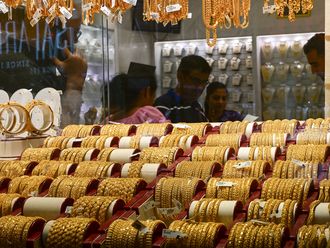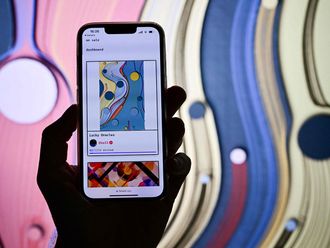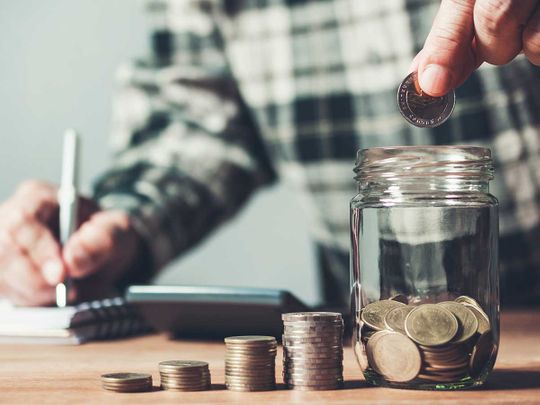
Do you feel that even though you are not a spendthrift, you can’t seem to save at all? Do you always plan finances but run out of budget?
You might also be prone to what Gary Belsky and Thomas Gilovich, authors of Why smart people make big money mistakes, and how to correct them, explain as ‘mental accounting’.
‘Mental accounting’ is when a person accounts for and attaches value to large financial decisions such as buying a car or renovating a house but ‘devalues’ small regular payments or purchases made with plastic money. However, when people are less cautious about these ‘small’ payments, they can add up quickly in comparison to a one-time big expense. In addition to this, using a credit card to pay is much easier on the mind than paying the same amount in hard cash.
Sometimes buying a chair for Dh500 may seem more expensive when getting an entire home décor set for Dh15,000 because one does mental accounting for each scenario. However, when the entire set is not essential, every dime spent over the Dh500 is over-spending. This can also happen through advertisements. For example, you go to the store to buy milk for Dh10.50, but end up buying cereal because it was advertised as being on sale. You did not need the cereal but you spent more than you planned because of the assumed savings advertised.
All this is, in absolute truth, in your mind. So it is entirely up to you to be able to spend and save smart.
Spending wisely does not have to be about excessively controlling your desires. It is just learning to prioritise the right kind of wants alongside essential needs.
Here are some tried and tested tips:
1. Wait before you spend
The most common kind of over-spending is impulsive. The way to beat this is to wait the impulse out, and if you still want it after the pre-set period of time, you can buy it.
For example, Alex* has Dh5,000 saved up. In September, a new smartphone dropped their cost to Dh4,500. Alex has a perfectly working smartphone, but he loves the features of the newly released phone which include a better camera and a bigger screen. The impulsive decision would be to buy the phone in September. Alex decides to put his Dh5,000 away to buy the phone in January.
In this case, it is highly possible that at the end of this time period, he might decide to not buy the phone, which would mean he saved Dh5,000 to save/invest. In another scenario he might go ahead and buy the phone in which case the money spent was not impulsive, but a planned decision.
2. Credit card is not better
Research has shown that people are willing to spend more — around 83 per cent more in some cases — when paying with a credit card instead of cash. In the UAE, this definitely seems to be true.
From big purchases to small payments, studies around the globe show that credit card users attribute more value to the product itself and its features rather than the cost or the increase/decrease in prices.
You can control over-spending this way by deciding to spend a pre-determined budget in hard cash. Limit credit card use to certain categories of expenses [phone payments, bills such as water and electricity] while using cash for day-to-day expenses.
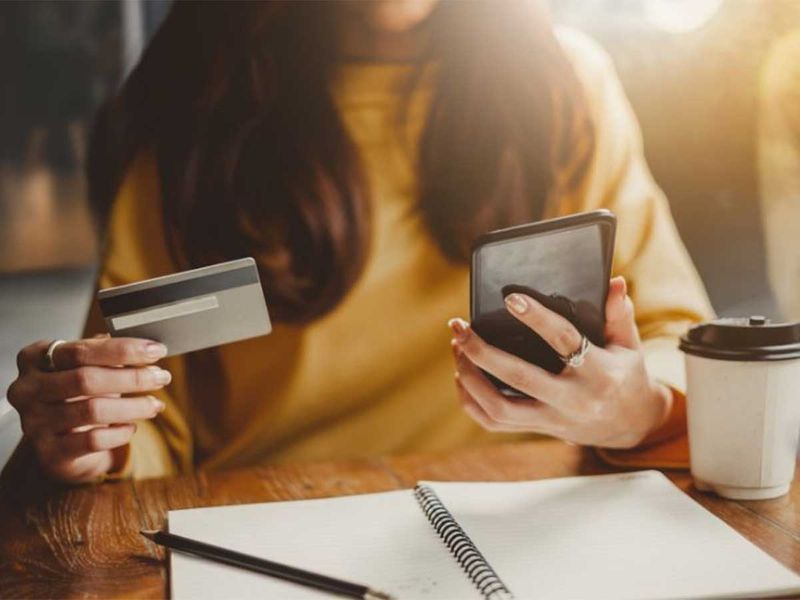
While this may not be feasible for big purchases of appliances or one-time payments for major expenses, the cash-payment policy can help in regulating day-to-day expenses such as groceries.
If you think you can restrict your grocery budget for a month to Dh1,000, withdraw the amount in cash and make all your grocery payments in cash. Fuel payments is another way to incorporate cash payments.
Paying in cash hurts more when spent, so this can help you stay on track on the small day-to-day expenses that add up over time. If it costs you more to pay in cash, for example on an online delivery, it would be smarter to pay via card. Consider each payment individually for a second before deciding to swipe that card.
If you don’t use one of your cards and haven’t had the situation to use it in the last six months, get rid of it. Call your bank and get it cancelled. Annual fees can add up quickly and it is easier to fall into temptation when you have the means in your wallet.
83 %
People are willing to pay more when using a credit card than with cash
3. Cost-effective convenience
People who tend to overspend might say “I spent this amount for my convenience”, and there is nothing wrong with that. However, when convenience becomes indulgence, the chances are you over-spent. This could be for a small expense or a big one.
For instance, Sarah* – a 25-year-old at the time – was faced with a big life decision, buying a car. After looking at options, she went with a new sedan for Dh88,000. Three years of expensive monthly payments later, she felt like she should have either bought a second-hand and seldom used car for a little over half of Dh88,000 or bought a first-hand but cheaper car that was safe and would take her from point A to B. She loves her car but after a couple of years, Sarah felt the convenience she wanted could have been bought for a cheaper price tag.
In another example, Sania* uses the Metro and has to walk 500 metres to her office. In summer, she takes a taxi to work, which costs her Dh12, adding up her total transport cost to Dh22 (with Dh10 Metro charge). In winters, she could walk instead of paying Dh12, but reasoning it as the ‘cost of convenience’, she takes a taxi. Sania chose the Metro option to save money, but doesn’t realise that using her own car would cost her less than Dh20 to get her to work. So, instead of saving, she spends an extra Dh12 every day, adding up to Dh1,872 in six months (calculated as 26 days of work) for a misplaced idea of convenience. In summer or peak sun hours, her convenience cost is worth it because of how hot it gets during the day.
Mathematics and experience should justify your convenience cost – this would mean the ‘worth of the money spent’, both in numbers and in experience. Ask yourself this question before spending on anything for convenience sake.
4. Change ‘This or nothing’ philosophy
Sometimes, a middle ground can help you curb spending. If you want to buy a phone, don’t set up mental limits of what you absolutely must have. The ‘I will only buy this or I will buy nothing’ philosophy can trigger over-spending. It is highly possible that your preferred (and not already chosen) option is the best for your needs but there is also a high probability of finding something cheaper that has more value for the money you spend.

It is not about compromising, but about being smarter in your choices.
5. Identify triggers
Stress-shopping or retail therapy is a common thing and is nothing to be ashamed of. Some people also tend to spend more when they are not stressed – a sudden raise in income could trigger additional spending just because he or she can. Each person has a different trigger and identifying yours can help curb a lot of over-spending.
The next time you feel like buying something you feel you need, but logic says you don’t, ask yourself why you want it. Note down the pros and cons of the purchase and head the list with the amount you need for it. Follow the first tip of waiting to spend, to see whether the impulse will pass in a week or two. Do this every time you feel like shopping non-essential items.
Once you have identified the emotion behind the spending, you will know what triggers it.
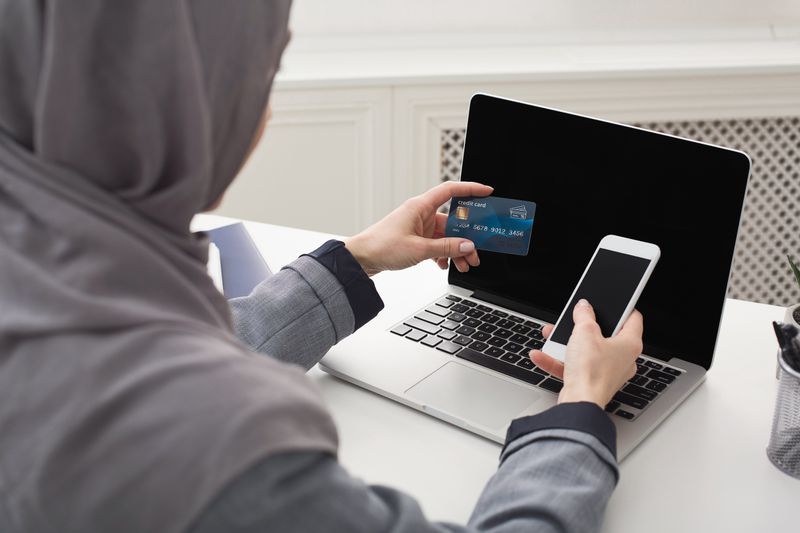
Find another way to handle the trigger. It could mean deciding to stay off shopping apps on your phone or going for a walk or spending some time with family. For instance, I have deleted all the food apps on my phone because I realised that I don’t feel the need to order food delivery when I think of the hassle of downloading the app. I either carry my own lunch or order something (and pay in cash) at the affordable office canteen.
6. Combined finances, pros and cons
‘My money’ and ‘your money’ trigger different responses for everyone. For example, Jack’s* dad gifted him Dh1,000 for his birthday with a clear indication that Jack should spend it wisely. Jack also has another Dh1,000 stashed away for expenses. Research shows that Jack will generally find it harder to spend the Dh1,000 that Dad gifted than the money he has already – because it has a sense of responsibility attached to it.
For couples, combining finances could help save more individually and together because of the ownership responsibility attached to the funds are ‘our fund’. The discussion for combining finances should be mutually beneficial and towards common goals as a couple with both parties respecting each other. However, this is a decision to be taken seriously with a lot of discussion as each individual might have different spending habits.
A mutual understanding of finances is key in being able to control spending without giving up on things you need and want.

Ask each other
- Are you okay with combining finances?
- Would you rather save together but spend separately? You could choose to save money together while keeping spending separate.
- What is the threshold limit for spending alone with no discussion?
- Write down all installment amounts, auto-debit, etc., on the account.
- Set a process for deciding on a financial spend that either one thinks is not necessary.
- Set up mutually discussed budgets for items such as gifts, lifestyle expenses, and self-care – be open to each other’s needs even if one thinks the other’s expense is not worth it. The ‘purpose’ of money is different for everyone.
- If you feel like your partner has trouble controlling spending, combining finances may dwindle both of your savings – instead put both of your savings in a joint account that cannot be used for shopping online and cannot be withdrawn as cash – like an e-savings account.
- While this is an ideal situation, many real life situations are far from ideal. If you feel your income is being spent recklessly and with no consideration for your financial goals, suggest a separate account to save money. If you cannot get that done, save a small but recurring amount separately at the beginning of the month before it gets spent.
7. The ‘purpose’ of money
To each individual, money means something different. To some, it might mean a plush retirement fund while to others it might mean living pay cheque to pay cheque while travelling. The purpose you attach to money should be modified to match smart financial goals. A reasonable savings account is not possible immediately if you travel international every six months.

Your age, current income, job security, dependants, etc., play a part in making this decision. Every time you set aside money for a passion, save an amount equivalent to half of that amount separately. This holds true in the opposite case as well – when saving, keep aside an amount equivalent to half of the savings on a possible passion. This can be your ‘fun’ fund. Balance is key.
8. Travel smart
If you don’t have kids and the resulting annual vacation schedules, travelling smart is very easy. Even if you have kids, travelling smart is all about research and planning. Use online websites to find the best destination for you and the family based on budget and travel period. For example, on Kayak, you can set a budget and a month to see the best destinations to visit when travelling from the UAE.
You could also use Skyscanner’s many lists to figure the best destination for your planned vacation period. Lonely Planet is another website that lists countries based on best months of travel and best destinations of the year.
If you are not tied down by schedules, taking short breaks every six months is refreshing and pocket-friendly. Have a favourite destination to travel to? Check flights and hotels for the time just before the peak period. If you found a hotel rate that is ideal, lock it in with delayed free cancellation even if you haven’t booked flights yet.

When getting a ticket, ask for miles, points and discount offers attached to your credit card firm. For travel insurance, ask your company if the insurance company will cover travel – which means you pay nothing but get coverage with a letter. Book flights from the UAE on Tuesdays – we have seen those are the cheapest usually.
9. Ask for lower prices but do the math
Don’t be shy to ask for a bargain. It is your hard-earned money and therefore the value you attach to it will be critical in a supplier or a store deciding to give you a discount. There is no shame is saving money because it serves your ‘purpose’ as explained above.
However, if a lower price in another store means you spending money and effort that goes over the savings, don’t bother. It is all about the math.
For example, a friend told Petra* about a spa deal at Dh200 near Ibn Battuta Mall. Petra, who lives in Sharjah, hasn’t found anything at that rate or quality near home – the asking rate for what she wants is Dh300. She chose to go to Ibn Battuta from Sharjah using public transport, she spent Dh10 on the bus, Dh13 on the train – adding up to Dh46 at the end of the day. In addition to this, she bought a water bottle on the way and a coffee while waiting for her appointment for Dh25. She spent a total of Dh271 for her one-hour experience, spending over 90 minutes travelling and around 20 minutes walking. Petra only saved Dh29. This is representative of the math one should do when making any decision on saving and spending.
10. Diligence
The most important tip for any spender is diligence. Look at your credit card reports each month, add up your expenses, look at that disturbing spending pie-chart – all of this will help account for, if not save on, spending. Maybe you missed a Dh500 fee on your card that you thought was free or you found a pesky Dh3 charge that appears when you get your SMS mini-statements that you never look at.
A penny saved is most definitely a penny earned.





